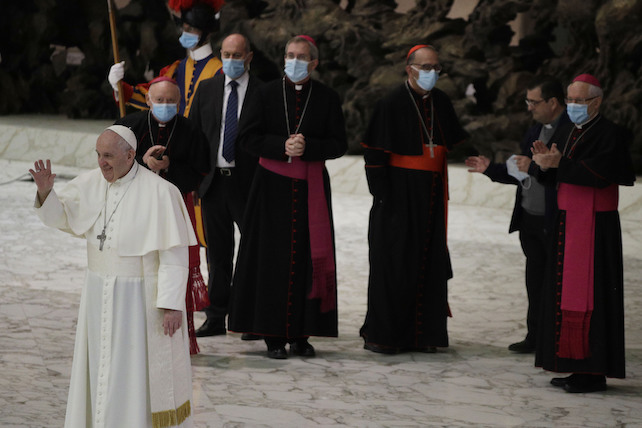What a new and strange thought. . .how to re-open a church.
But we’re all in it and figuring it out while the playing field keeps changing.
Many churches have been re-opening for months now, and others won’t begin until sometime in 2021.
Let’s start there, churches don’t simply re-open, and you’re done. Re-opening is a process, and it could be a long one depending on when we finally get to the post COVID era. It requires a new leadership mindset.
As long as culture and circumstances keep changing, the church continues its re-opening process.
There are so many options in re-opening your church. Here are a few examples.
- With children’s ministry, or without children’s ministry.
- Shortened services or full-length worship service.
- Emphasis on the in-person gathering, or emphasis on the online experience.
- In-person student ministry, or online student ministry, or both.
- Self-serve coffee and prepackaged snacks, or no coffee at all … (What! – No coffee at church?!)
- What does community outreach need to look like?
- Not to mention a long list of things like baptisms, weddings, and funerals.
As you continue to work through your specific choices, there are some factors that ring true for all of us.
The following thoughts and ideas will be helpful as you pursue the re-opening process.
6 important factors to open your church well:
1) Expect more change and surprises than you anticipate.
If there is anything, you can count on its constant change. The more you can anticipate change, the better, but in this season, you are doing well to respond to change with adaptability and a mindset of seeking opportunities.
Your ability to be nimble and shift according to the cultural issues is critical. That doesn’t mean to abandon the essentials, and certainly not the gospel, but otherwise, remain open and ready to change.
Adaptability is especially essential when it comes to your combination of online and in person. That is likely to require the most updating and innovation within your ongoing re-opening process.
One of the top surprises leaders are experiencing in the re-opening process is who leaves their church and why.
Do your best not to become discouraged about those who don’t return to your church, mainly if they chose to attend another church. Instead, let anyone who leaves know they are loved and welcome to return any time.
Focus your attention on the new people God wants to bring to your spiritual care.
2) Recalibrate what it means to build or grow a church.
Many churches have been blessed with rapid growth in the past and may see it again sometime, but it is more likely that we will enter a season of slower and more layered growth.
Determine now that whatever it takes, you will build again the church God has given you to lead.
The spiritual strength of your church is more important than the physical size of your church.
And of course they are not mutually exclusive.
That doesn’t mean we’re no longer biblically responsible for reaching more people or that we can assume a “hold what we have” mindset.
It does mean that culture has changed dramatically, habits of church attendance have shifted, and spiritual strength and maturity are the greatest form of outreach we have.
The world needs a reason to come to church again, online, or in person. Let’s make that plain to see.
3) Hospitality has a new face and feel.
Hospitality today often feels (ironically) socially awkward. We are learning how to navigate intimacy and connection with distance. That’s not easy, but it’s the new reality.
The most friendly and welcoming people on your church teams wear a mask, hold a sign, and show people lines to follow.
That’s what we need to do, I know, but that doesn’t make church seem more warm, friendly, and welcoming. It does communicate we care about everyone’s health and well-being, and that is vital.
Our effort must be double what it once was to communicate we genuinely care.
For example, figuring out how to learn names and remember them is more challenging now, but it deserves our effort.
Follow up of new guests and invitations to take the next step has become even more critical than ever.
Remember, those you greet can see a smile hidden by a mask through your eyes.
4) The reason people come to your church may have changed.
What your church was once known for may have changed, not because you actually changed at a core values and belief level, but because the culture has changed, and therefore people see you differently.
We need to become great students of current culture to understand people’s perceived needs and how they see the church today.
- How do people see your church?
- What do you think they perceive your purpose is?
In the same way that you may be surprised by who does not return to your church, you may be (delightfully) surprised by who does come. Thank God for every person he brings and put your leadership energy there.
One of the most productive things you can do right now is ask your new guests what brought them to your church or why they came. Look for patterns to see how God is moving.
5) How and what you measure may need to change.
Measuring church strength and growth is different right now, and it may never completely go back to the way it was.
Numbers matter; they always have; they help keep us “honest” about reality. Even now, your last year’s numbers serve as a benchmark to compare to. But equally important is to not frustrate yourself by fixating on “the way things were.” This is a new day.
For example, at 12Stone Church, we’ve changed our entire budgeting system, from an annually based system to quarterly, and I doubt we’ll ever go back.
Of course, you want to keep track of the increases in attendance, but again, don’t get stuck there. It’s more important right now to:
- Place your leaders in the right positions doing the right things.
- Adapt your ministries to what is needed now to meet the needs of the new reality.
- Continue to take the next right step.
You don’t need all the answers for eighteen months from now, but your congregation is counting on you to make each next strategic decision a smart one.
6) Nothing is more important than the life and message of Jesus.
The world has always needed Jesus, but I can’t remember a time where the stakes seemed higher.
Keep your passion for the mission strong through all the change, don’t let anything or anyone move you from the biblical standards the church has been built upon for centuries.
Jesus is at the core of your vision and values; hold firmly to them. He is the rock that holds us steady through all the uncertainty.
This article originally appeared here.














